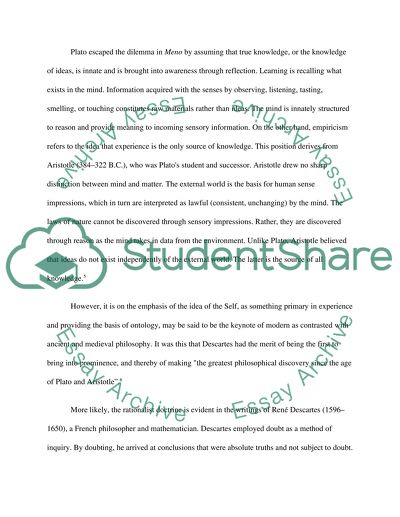Plato and Descartes: Comparing their Thoughts on Knowledge and Essay. Retrieved from https://studentshare.org/miscellaneous/1515233-plato-and-descartes-comparing-their-thoughts-on-knowledge-and-learning
Plato and Descartes: Comparing Their Thoughts on Knowledge and Essay. https://studentshare.org/miscellaneous/1515233-plato-and-descartes-comparing-their-thoughts-on-knowledge-and-learning.


